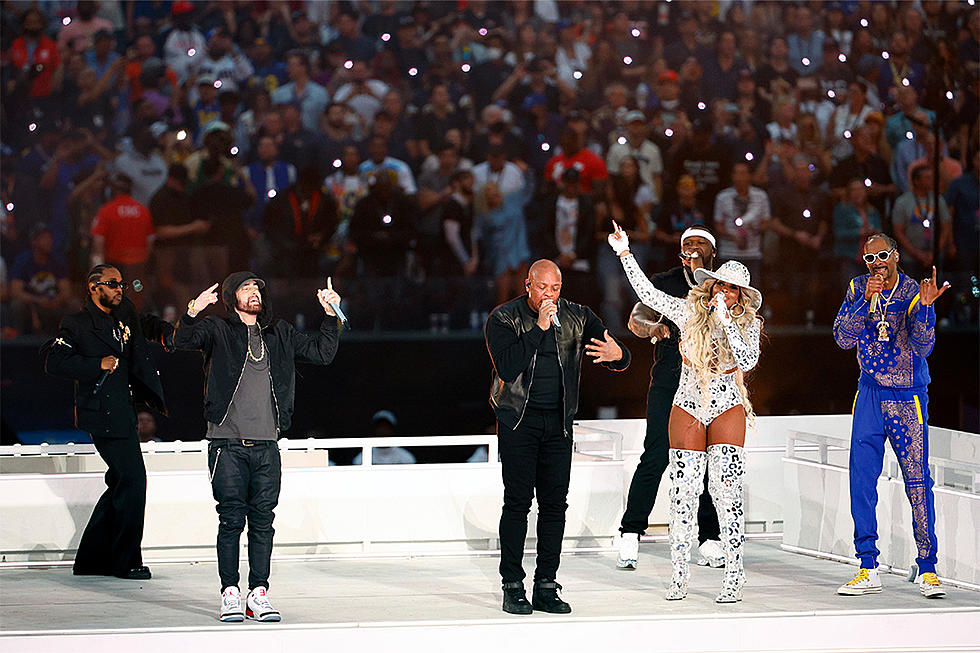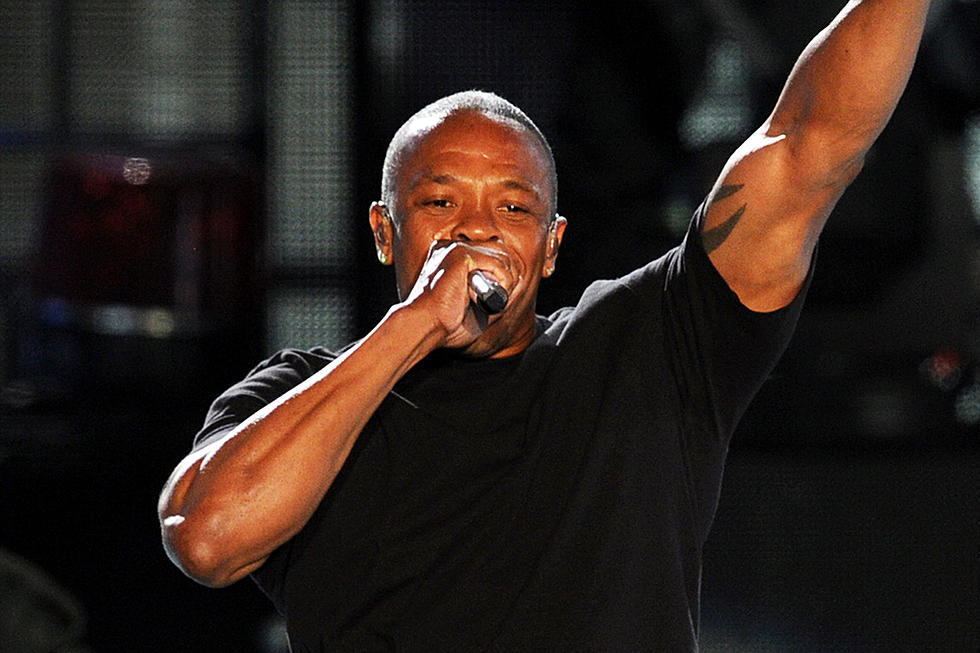![Mary J. Blige: Something Bout Myself [Excerpt From the November 2011 Issue]](http://townsquare.media/site/812/files/2011/10/maryjblige-image.jpg?w=980&q=75)
Mary J. Blige: Something Bout Myself [Excerpt From the November 2011 Issue]
Mary J. Blige is no MC, but the 40-year-old songstress means as much to the hip-hop community as any ill spitter does. Dubbed the Queen of Hip-Hop Soul after she released her 1992 debut, What’s the 411?, Mary has a connection to rap that runs deep. Her debut album stamped her as an immediate superstar, but it was her sophomore set, 1994’s My Life, that made the Yonkers, New York, native arguably the most beloved singer of today’s R&B.
Over the years, Mary has spent a chunk of her career collaborating with some of rap’s biggest stars. Who could forget the groundbreaking partnership of Method Man and Mary on Meth’s 1995 smash hit “I’ll Be There for You/You’re All I Need to Get By” or the soulful crooning of MJB on her 1996 collabo with Jay-Z, “Can’t Knock the Hustle”? There have also been “911,” with Wyclef (2000); “Rainy Dayz,” featuring Ja Rule (2002); “Runaway Love,” with Ludacris (2006); and dozens more hit records pairing Mary’s rough and rugged, soulful voice with a celebrated MC.
It’s been almost 20 years since fans first met Mary J. Blige, and her career has reached legendary status. Although she still makes records with rap superstars, her audience has grown way beyond hip-hop and R&B. Now she makes songs with pop royalty like U2’s Bono and Elton John. She’s also finally working on her 10th LP, My Life 2: The Journey Continues (Act 1) (Matriarch/Geffen).
In honor of Mary’s illustrious career, XXL reached out to 20 of the Queen’s biggest fans, who also happen to be some of hip-hop’s favorite MCs. Here she answers all of their questions, from how she overcame her personal struggles to what it takes to last two decades in the music business. Here’s the 411. —Shaheem Reid
YOUNG JEEZY: How does it feel, after almost 20 years in this business, to still reign as the queen of hip-hop soul?
Mary J. Blige: It feels so good that, after 20 years, I’m still doing what I’m doing. I’m doing me consistently for my fans. I’m touchable to my fans. They can talk to me. They can smile at me.
JADAKISS: Every time we get around you, no matter what you are going through, you’re always in great spirits. On that stage, on that mic, your energy affects people. What motivates you to keep going on that stage, doing so many shows?
My fans motivate me. My life motivates me. I love what I do. I love my job. I love to touch people through my music. My fans want it, so I give it. It’s a gift from God to me that I appreciate it, and I love what I do.
FOR MORE OF THE MARY J. BLIGE FEATURE, GO TO PAGE 2
BIRDMAN: I remind my artists that this is a business—this isn’t a party. What’s your key to success and longevity?
My key to success and longevity is understanding that I did not do this by myself. It takes a village to raise a child and a team of people to make any artist look great. There’s a team of people that are making us look great. There’s a team of people…helping us with all the stuff we have to do every day. Then there’s your fans. Without them, none of your records would even be heard. So just staying humble and grounded. Knowing it’s people that help you to get where you are.
LUDACRIS: Which of your songs brings you closest to tears when you perform it?
"My Life" brings me closest to tears…and “No More Drama.” Everybody wants no more drama, but it’s impossible, because it’s everywhere. At least we can make that concession and have less drama.
SHEEK LOUCH: Mary, you’re my homegirl, and you’ve always been supportive of The Lox’s career. I want to know, what are your memories of the first time you took us to Puff Daddy?
All I could think of [was], Puff’s gonna love these guys. I had so much faith because they were so amazingly dope to me. I was happy to go to Puff, who I knew was gonna do something with them. I wanted them to win because they are three of the nicest guys that I know. They’re just talented, and I was excited for them.
WIZ KHALIFA: When you first started out, did you have intentions of changing the game, or were you just singing your heart out?
I had no idea. I was just singing my heart out.
HAVOC: How did you feel when you heard your first record, “You Remind Me,” playing on the radio, and when the song later became a hit?
It felt so good to hear myself on the radio. [When it became a hit,] it felt double good, to know my family and I were going to get out the environment we were in. I was going to get my mother and my family out of the hood.
RICK ROSS: Did you have a feeling that What’s the 411? would be so influential on the sound of hip-hop music when you recorded the album, and what do you think of the album’s impact?
When I recorded What’s the 411?, I had no idea it was gonna shift the whole [sound] from new jack swing to hip-hop soul. I was just singing my heart out. I love to sing, and I was nothing but a hip-hop head from when I was growing up, and I still am that. That’s all I rolled around in my car listening to: Reasonable Doubt and Illmatic and even the Mobb Deep album, that Infamous album. The loops [in hip-hop music] moved me, and I always felt like a rapper who could sing over those beats. I had no idea it would move people the way it did; I just gave them my all.
**FOR MORE OF THIS STORY, PICK UP THE NOVEMBER 2011 ISSUE OF XXL, ON STANDS NOW**
More From XXL









